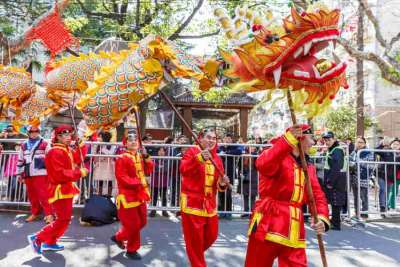The Art of Feng Shui
As Asian culture becomes more popular in the United States, the ancient Chinese method of creating a harmonious environment, feng shui, is also gaining ground. Pronounced "fung shway," feng shui literally means "wind and water." Its roots are 5,000 years old.
Feng shui seeks to promote prosperity, good health, and general well-being by examining how energy, qi (pronounced "chee,") flows through a particular room, house, building, or garden.
When to Feng Shui?
According to the website of the Way Geomancy Pte. LTD, a Singapore consulting firm, a feng shui master should be consulted whenever you:
- plan to move to a new home
- experience something unexpected
- face job instability
- have health problems
- quarrel with your spouse more than usual
- have an accident at home
- fail to sleep well
- have a child doing poorly in school
- realize a family member does not feel comfortable at home
- have a negative premonition
- lose control of your temper frequently
How Is It Done?
A feng shui expert, known as a geomancer, takes a number of things into consideration. He or she will consult an individual's Chinese horoscope to figure out what is best for that person and use complicated mathematical calculations from the ancient I Ching, (Book of Changes), to determine what aspects of the house are out balance.
Feng shui considers yin, feminine and passive energy, and yang, which is masculine and hot. It looks at the five elements - (water, fire, wood, metal, and earth), and the external environment. The points on the compass are also important. Eight separate directions are reviewed: north, northeast, east, southeast, south, southwest, west, and northwest.
Feng shui can be used to decide the location, construction, and architectural features of buildings, the placement and style of furniture, colors and decorating schemes, and the location of plantings, paths, and other outside features. By creating a more pleasing atmosphere, feng shui has been credited with improving family communication, restoring employee cooperation, and increasing a store's sales.
The principles can be applied to any style of building or decorating, not just to Chinese or Asian modes.
A Royal Secret
When China was under imperial rule, feng shui was a secret known only to a handful of astronomers and scientists, who were commissioned to maintain the health, wealth, and power of the court.
Imperial palaces and cities were planned according to feng shui, which became a principle of classical Chinese architecture. Beijing's Forbidden City is one example. A spectacular complex of palaces, administrative buildings, and temples arranged around a series of courtyards, the Forbidden City was the capital of China during the Ming and Qing dynasties.
Commercial Feng Shui
But today, feng shui is available to everyone. Banks, hotels, houses, and even several new communities in Hong Kong have been planned according to feng shui. Many Chinese use feng shui to improve business.













